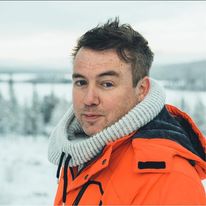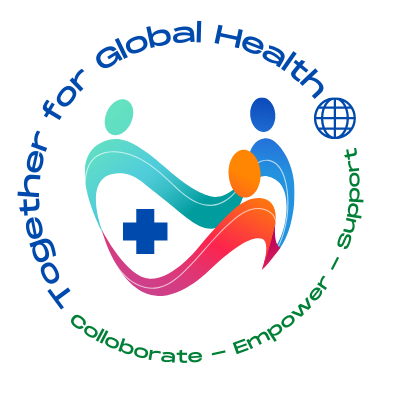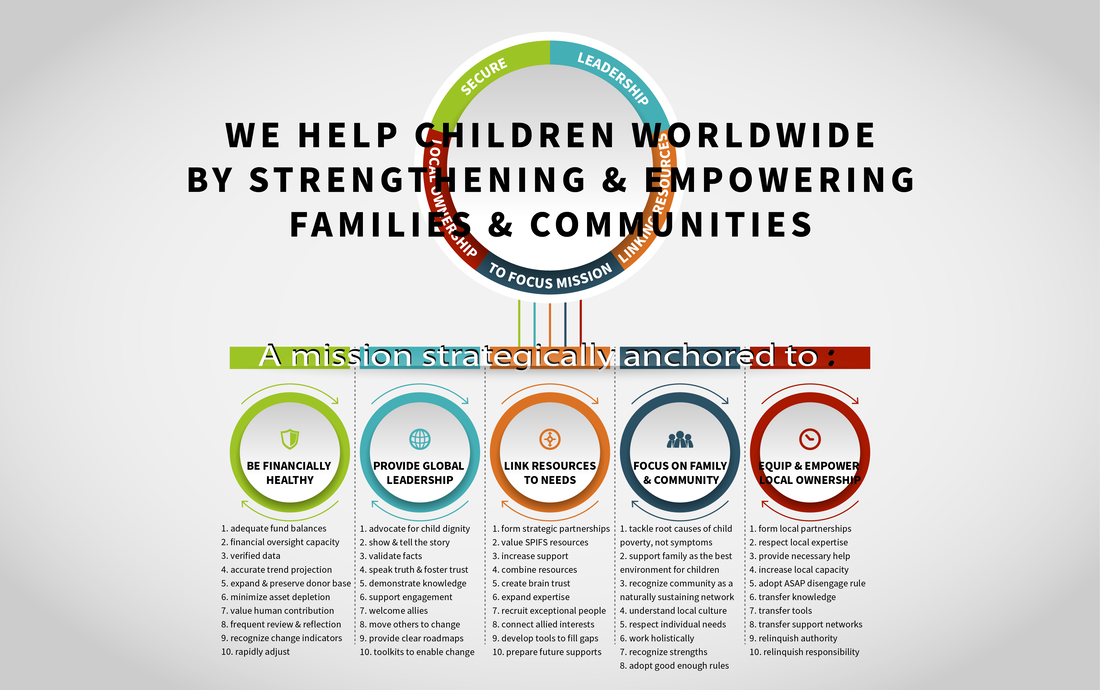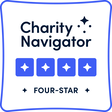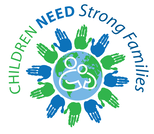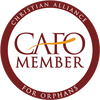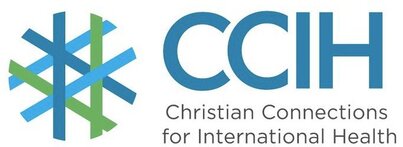|
Samuel Rich, Filmmaker HCW is proud to have won a major grant from the First Fruit Foundation to complete the development of a Family Care Model Expansion Package featuring a “Story of Change” documentary as part of HCW’s Continental Partnership Development Strategy. Filming will begin in 2023, with the goal of a film release early in 2024. Award-winning filmmaker, Sam Rich (Lost Kites) (Dear Panama) has agreed to create the film with our team, Dr. Laura Horvath, Dr. Melody Curtiss, Emmanuel M. Nabieu, and David. T. Musa
The “Story of Change'' film is part of a strategy to promote Family Strengthening Models and family care for children over institutional care. The film will tell the story of transformation from orphanage care to family care from multiple angles across organizations, countries, and stages of change in order to inspire others to become champions of change in their own contexts. Laura Horvath and Melody Curtiss will co-direct the film, and the plan for international footage will include Foundation for Orphans programs in Mozambique, All For One/Child Prosperity Centre in Sierra Leone, Red Meets Green/Bishop Judith Craig Children's Village in Liberia, and the Divine Heritage Children's Home in Nigeria. Some footage may be filmed in Kenya, and in the United States. If you are interested in supporting this project, please contact Melody Curtiss.
0 Comments
Two years ago, HCW formed a network called Together for Global Health (TGH) in order to expand our work to support infant and maternal health, connecting to others engaged in public health in a spirit of 'radical collaboration.' TGH is a global coalition of organizations dedicated to promoting sustainable health care and wellness in low-resource communities to ensure the people we serve can receive care regardless of their ability to pay. As 2022 draws to a close, our network consists of 20 members in 21 countries.
We were excited to learn about the work of the Compassionate Birth Network, which shares HCW's and Mercy's values of working in collaboration to provide compassionate and sustainable care. We were honored to be asked to become the new home of the Compassionate Birth Network, and we are thrilled by the future opportunities for collective action in this combined network that will now be supporting 35 members in 29 countries. Through this merger, we will learn from one another and provide more organizations with resources, best practices, and capacity-building support, allowing our impact on the health of women and children to dramatically increase all over the world. A post from the Optimistic Voices Podcast of Helping Children Worldwide The optimistic voices below are assigned to specific people. To listen, rather than read this post please go to our OPTIMISTIC VOICES PODCAST final episode of the year, post date 12/23/2022, “Yes, Melody, We Can Change the World!” Melody: To be completely honest with our audience (radically honest), the work and the mindset evolved over time. We have only just arrived at that point the board pointed to during my interview half a decade ago. The impact grew. We annually and directly impacted 450 families and 17,000 patients in the past few years with a budget of 1 million, an international staff of 8 and a global programs staff of about 80 in 1 country. We turned Mercy into a real hospital, and we gave control of management to local leadership, began a practice of asking instead of telling and all the things we’ll talk about this hour. But let’s do the math … If we wanted to serve the 385 million children living in poverty worldwide, the way we have served in Sierra Leone, it would take …let’s see…20,000 into 385 million - and 107 countries…well okay - trillions of dollars and hundreds or thousands of staff on multiple continents. Laura: That’s why HCW is radically collaborative - we are consistently reaching out, connecting, and networking. We believe that as the African proverb says - if you want to go fast, you go alone, but if you want to go far, you go together. Nabs: By shifting autonomy to those running programs by equipping and empowering local leaders and linking resources to needs - we’ve been freed up to find ways to maintain financial health and provide global leadership without spending trillions of dollars and hiring hundreds of people. Yaz: It’s allowed us to really dream into our future. Melody: We anchor that dream to five strategies and analyze everything we are doing to verify that what we do is keeping us attached to the mission of helping children worldwide. That keeps us on track: Our anchors are to: 1. Be Financially Healthy 2. Provide Global Leadership 3. Link Resources to Needs 4. Focus on Family & Community 5. Equip & Empower Local Ownership There are individual activity goals associated with each anchor: HCW is a true collaborative team. We all take turns leading from our position of expertise, and that DNA I like to talk on and on about is our collective DNA - it comes from our partners, our volunteers, our founders, our collaborators, and every person at the international HeadQuarters. The more we collaborate, the more we want to collaborate! Nabs: True partnership requires a meaningful participation which means it cannot be done in isolation. Especially when we talk about partnership around protection. It’s a partnership that shift from feeling ideas to working together. The needs of our world can be overwhelming, and we all want to help to do our own part but cultivating the spirit of meaningful partnership and collaboration matters so much when it comes to ensuring that each person’s little role truly expands in countless ways. This mindset to present day mission work promotes collaborative efforts and allows us to do life-changing things like: engaging, equipping, and producing creative leaders, helping local partners and vulnerable people overcome the limiting beliefs they tend to hold from themselves, which international partners unintentionally reinforce - that they are not enough, they don’t have enough, they are not capable, consistently building into the lives of each other and making meaningful local investments, while making the most out of the limited resources we have, creating more leaders and less followers , helping people move from compliance to commitment, from dependency to self-sufficiency. Lots of organizations who all want the same things but do things in different ways are working with us, and on these same problems in different places and with different people, and that’s okay. We do not want to duplicate efforts but want to work together to maximize resources and increase impacts, and help people do the small things that work together with other small things to solve big problems. We don’t all have to do the same things, or do them the same ways, or oversee every decision to be partners in this work. Laura – leading isn’t always about deciding, it’s almost about helping people become leaders in their own lives, convincing them that they do have capacity. Look, we all need help and support, but that doesn’t mean we can’t lead in our own families and lives. We just do the best we can, and when we need help, we ask for it. Yaz –not just about doing things but doing things well. Sustainability is key. Melody And frankly, we are not experts on anywhere other than where we live. Imposing our perspective in a resource rich environment on people in resource poor environments, and completely different cultural and government contexts is not a useful way to generate solutions that work somewhere else. Nabs - True partnership turns ideas into impacts and a partnership becomes really meaningful when it is transformative - that is, both partners' ideas have been taken into consideration to affect decisions. It’s important to maintain the core principle that those people who are closer to the impact get to take a lead in developing local solutions, without ignoring the vital role of those partners serving in a more supportive, capacity-building, bridging to resources role. Melody: Laura, you are our top programs strategies guru - why are family empowerment, health systems support and village partnership all part of Helping Children Worldwide’s approach to child poverty and survival? Laura - It’s kind of a systems approach in the sense that the goal is to help a family - or family system - develop resiliency. We’re not trying to ensure that everyone moves to the middle class or gets rich - we’re trying to help people gain the capacity to remain resilient even when life deals you a moderate shock - a death in the family, a serious illness, a failed crop. It’s not about avoiding those shocks - it’s about how you as a family or a community are able to tap into your own resources, your family, your community, etc. to get through those challenges. Helping people identify the resources around them they may already have is part of the work. And I know you’re thinking of things that cost money - counseling services, WIC programs, things like that. But I’m also talking about things like ‘who is your 3am phone call - you know - the person you can call when something bad happens in the middle of the night. How close are your extended family, and who could be counted on to watch your kids, or loan you money in an emergency? What about your church, or your mosque - what could they do to help you out? And helping people see their own strengths that they can lean on as well. Melody: I think this is the same way I raised my kids, the same way I taught school. To not have an idea that there’s going to be an easy answer to every problem that might come up, but to know where to go to find solutions, who to turn to to ask for help, how to problem solve. Nabs: We think about the “ecology of the child” - where the child is the center, but is surrounded by the family, the extended family, the neighborhood community, the region, the country, etc. All of these circles impact and can support the family. That means that Family Empowerment and Village Partnership programs can address the issue of childhood poverty and vulnerability by strengthening not just an individual child, but the whole family, and by extension, the community as well. Laura - Building the family’s capacity to be more resilient strengthens whole communities - our village partnership approach. And yes, we are Helping CHILDREN worldwide though family empowerment and health systems support because the best way to care for vulnerable children is to care for the families that care for them. Yaz: that’s why this also all equates to how to do ethical STM - When we hold interest meetings for teams, I always remind those who are interested in going that Mission teams serve on a short-term experience, but their work supports a long-term plan. As Laura always says, they will not be engaging in a two-week mission, but will be engaging in a 22 year mission! Our strategy with our short term missions is to further our goal of engaging, equipping, and producing creative leaders. This empowerment goes both ways. For our partners who are receiving us, we want them to be inspired by the visitors and have that spark a renewed passion in their work. We want our partners to know we are invested in them and dedicated to giving them the resources to overcome their challenges. For the visitors, what we call “missioners,” we want them to be inspired by the dedication and accomplishments of the local partners, and to be engaged more in our mission and become advocates for the work that we do. For both of them, we want them to learn from one another’s experiences of the work in their particular fields and creatively work to develop solutions to tackle problems. This often takes the form of our missioners training local staff, and local staff providing feedback on how to implement that training in their context. This is also points to our sustainability goal: we are not an organization that gives a man a fish, but teaches a man to fish. Although this training and support is provided, the ethical approach is not to jump into projects and try to get 100 things accomplished in a 15 day trip. In my interest meetings, I also emphasize that the majority of a missioner’s time should be spent listening to, fellowshipping with, and learning from our partners on the ground, so they feel supported. Then, we can figure out ways to serve better. This is reinforced in our subsequent team meetings. We talk about Duane Elmer’s book Cross Cultural Servanthood, which emphasizes that in order to serve others, you must be open and learn from them first. We also train teams to be more culturally aware, teaching them techniques on recognizing cultural differences and responding to them, educating them on the root causes of poverty, and providing a historical context to the situation in Sierra Leone. All of this is to help build this culture of learning and collaboration between missioners and our partners Laura: I think it’s a real paradigm shift for missioners who are used to going and doing things and pointing to them and saying “I went there and I did that.This is what I accomplished in my two week mission trip.” Sometimes that gets all mashed up with some bucket list/experience trip expectations that come with having the opportunity to travel somewhere new and completely different from what you’re used to, and it often gets mixed up with how I”m serving and how that service makes me feel about myself. It’s not often done, but STMissioners should really try to reflect on all the reasons why you’re traveling in mission - some will be completely selfless, but some are honestly a little self-serving as well - that’s okay. That’s just how humans are. But unpacking that and understanding what drives you can help you better see how you fit into the larger picture of serving in a short -term mission within a twenty year partnership. It’s humbling, but your 2 weeks is a moment of time within the context of a deep, two-decade long partnership. Melody: All I have to add is that it’s an incredible mission team experience as well. To know that the work you do on the ground is a bridge between what people did before you came and what they will do next is so much more satisfying than a two week trip that fades into a memory. I just want to say that the part I would like us to do better in the future is focusing on making the mission team members commitment starting and ending point intentionally longer. I am looking forward to the day that a mission team expects to continue with remote support and engagement in the work they have started with the people on the ground. Nabs: transformation is a journey. The mission of transforming lives is not a short term mission, but a lifetime. When true partnership is built right - short term missions translate into a mission that makes a lasting impact. The beautiful thing about partnership is that every partner doesn’t need to be in the same place in order to plug in. If we can help missioners really deeply engage in the long-term mission, then when they come back they can increase the impact by sharing their experience with their congregations and other networks, and finding other ways to support. In this way, the impact can endure and replicate. That’s true legacy- creating a consistent pattern of sustaining and expanding the impact of a vibrant ministry that is continuing to build into the lives of vulnerable children, families, and communities hereby making the world the better place we all dream to live in. Yaz: So our work in missions is really an extension of our goals to Link Resources to Needs and Equip & Empower Local Ownership Melody: Laura, you are fond of speaking into our core values of radical honesty, radical collaboration, and radical trust and why this has proven to be our key to hitting way above our weight class. I would love it if you could share that part of our dream for the future. Laura: I’ve been with HCW for almost 20 years. My favorite thing about us is that we’re what I call “a know better, do better” organization. That doesn’t mean that we know everything and do everything perfectly - it means that we are deep in the research and best practice, and we strive to do the very best we can - but when we learn a better way, we do that. We don’t pivot willy-nilly, but we also don’t waste time when we know there is a better way to care for kids and families. Part of that is a deep ethic we have as an organization around radical honesty, radical collaboration and radical trust. Our transition was born out of our willingness to be radically honest with ourselves - with what we got wrong along the way. We want our donors, supporters and partners to trust us, and that means we have to be radically honest, with them and with ourselves. We also know that we don’t know it all - there are others out there who have expertise of offer, so we work hard to plug into existing networks of best practices, as contributors and as recipients. When we don’t find a network, we start one - like our Together for Global Health network, which is growing by leaps and bounds. Relationships are the foundation of all of our work, and good, healthy relationships require trust and honesty and the give and take of true collaboration. We are a tiny staff of just 8 people. These practices are what give HCW the capacity to punch well above our weight class and have earned us seats at some of the biggest tables in global health and child welfare. Melody: As long as I’m in a leadership role at HCW, we won’t be backing away from those core values. Not just because they have served us so well, but because that’s the behavior I think we want to see valued by anybody interested in helping children, how we change the world. Nabs: These are the rules of the game, I think. If we talk about true partnership - that’s not something you do alone - you have to be in a relationship WITH others. Without these ingredients - radical honesty, radical courage, radical collaboration, we would not have been able to sustain all this time. Open communication and deep respect, honesty and trustworthiness are critical - it’s why people trust us with their resources, their time, their donations - and their lives. Yaz: As someone who tends to be a “call it like I see it” person, it is great to see an organization that does not shy away from that. Laura: When we got brave enough to be honest about our failings and the hard lessons we had learned, that’s when we started being valued in the global community as a trustworthy voice, and got invited into more and more serious conversations about best practices and being asked to take a lead role in those discussions. Yaz: Our opening quote for this podcast is “Never doubt that a small group of thoughtful, committed citizens can change the world; indeed, it's the only thing that ever has.” This ethic of radical collaboration, radical courage, and radical honesty has taken us far in our work, and we know it’s because it’s the posture that Jesus wants us to bring to the work we do. God is constantly putting the right people in our path to collaborate. Whenever we set out to do a task, God helps us find someone who is doing the same thing to help guide us on the way. In return, we can provide that guidance to other organizations. Many of these partners you have met in our podcast episodes this year. Our collaboration has been driven by our radical honesty—we own up to our limitations and failures. As Paul says in 2 Corinthians, “But he said to me, “My grace is sufficient for you, for my power is made perfect in weakness.” Therefore I will boast all the more gladly about my weaknesses, so that Christ’s power may rest on me.” And our partners respect this honesty, because it helps us work together to discover how to go forward. Our radical honesty also helps keep us humble and reminds us that we punch about our weight class only because of God. Radical courage not only is not just courage but also faith and trust. We are constantly amazed at what we are able to do with a small budget and a staff of 8 people. Every day, something new and amazing happens: someone decided to give us a donation to accomplish the work we have been dreaming we would have the funding for, or an organization or individual volunteers to works with us to coordinate a project and ease our burden, or even in the small everyday things we see unbelievable progress. I make a to-do list every month and think to myself, “it not going to get done” and then I am amazed to see how much is accomplished. Sometimes we plan and God laughs because we are trying to do more than He is ready for us to do at that time, but more often, God laughs because we haven’t been dreaming big enough. Everything we have is a gift. A great example of this is the growth of our Together for Global Health coalition. In 2021, we realized that we wanted to collaborate more with other organizations engaged in global health work, as the collaborations we worked in in child welfare had already been so valuable to our work. So we reached out to about 5 other organizations we knew that worked with a clinic or a hospital. Now, our network has grown to over 20 organizations in about as many countries. Almost every week someone emails me and says, hey I met this other organization can they join our network? That’s collaboration. Now, our coalition has been given the opportunity to merge with another network of organizations that has resources, connections, and opportunities that we did not have before. This network looking to join us otherwise would have potentially been abandoned, but now we have the opportunity to double our group and therefore double our impact. From a group of 5 people meeting on a Zoom call we are now working together to mobilize resources that strengthen and sustain programs that provide healthcare to the most vulnerable in the world. We took the initiative to try and build this network, but everything from there on out has been a gift. Not everything goes according to plan—sometimes we start projects and are stalled because of resource constraints or staff capacity—but then everything will line up and we can move forward with what we hope to do. We are always courageous that when the timing is right, our labor will not be in vain. Nabs: This humility also helps us stay strong. Some days are very difficult because we are dealing with large, painful issues: poverty, malnutrition, endemic diseases, etc. But we know God doesn’t need us to do everything. He needs us to do our part. When there is true partnership, quitting is not an option. Laura: Here’s a “God moment” - one of our Board members forwards an email to us about a fundraiser at a UMC church, trying to raise $25,000 to build an orphanage. And so Melody, you and I decide to gate-crash - just to introduce ourselves and find a path to open the dialogue about best practices in orphan care - that turns into them asking US to give an impromptu presentation on why and how we shifted our model of care - that led to them asking us to coach them through the transition of two existing and three planned orphanages. Melody: Or how about the many times we respond to random connections, out of politeness or curiosity, only to discover that’s what leads us to the next step for the mission - like when a random linkedin connection you made Laura resulted in a conversation Nabs and I had with the guy because we were all in Freetown at the same time. We listened to his plans with a kind of masked horror and shared our perspective. We thought it landed on deaf ears, and were so frustrated and disappointed that somebody wanted to invest their donor dollars to build a huge brand new shiny orphanage to house 100s of children. Three years later, we found out our honest conversation piqued their interest. It ultimately transformed their plan and they hired a brilliant director to create a family support center instead, and that launched our three year partnership between them, the CRC and HCW to entirely change the landscape for orphan care in Sierra Leone. Or the time when I said to our staff, “if we are going to raise more money, we have to get out of our comfort zone and make new friends. From now on, we’re going to network with other mission leaders, and total strangers and talk about our experiences and the lessons we’ve learned.” The next thing we know, we’re leading conversations in the room, hosting seminars and leading workshops? Or how the Way Forward plan for dealing with issues at Mercy Hospital became the Together for Global Health partnership, which leads to our becoming a networking organization for Global Health on three continents and how many countries, Yaz? Yaz: I want to say something like 28 countries, now. In particular, this makes me think of our relationship with the Healey International Relief Foundation. I met their ED at a virtual conference in 2020, and by met I mean he mentioned in the chat that he worked in Sierra Leone and I replied and said, “me too! let’s be best friends.” Through our conversations over the last two years we have found that their organizational strengths and weaknesses are a compliment to ours. Where we struggle they have expertise and vice versa. Through our relationship with them, we have gained access to donations and volunteers that we would have never know had I not eagerly sought out their director. Melody: Even as we are expanding globally and living into our name, it’s all grounded in Sierra Leone. Nabs, explain why our work in Sierra Leone remains foundational in every partnership we establish. Nabs: Of course, every transformation begins somewhere. The ministry of HCW began in Sierra Leone at the end of the civil war. That violent civil war is over, but the new war is endemic poverty. It prevents children from reaching their full potential. The needs are so great and we cannot do everything. SL is still at the bottom of the UN development index. We are still doing the work of reintegration, strengthening families and supporting the healthcare system in Sierra Leone to lower the high child mortality rates. We do that work as true partners, learning together how to solve big problems. This is our systems based approach. We recognize that we are part of the system, and so are our friends in Sierra Leone. We don’t plan to abandon the work there, but build on it and use the lessons we learn through it to build new collaborations. Such collaborations include our partners there and the expertise they develop to strengthen the network of solution providers all across the region. It is important for people to understand that being from a poor country or family does not mean people don’t want to help others. Our partners in Sierra Leone want to be a part of the solution to poverty there, and also a part of the solution globally. This is how we will continue to elevate our true partnerships in the region (Liberia, Nigeria, Mozambique, Sierra Leone), by recognizing that we all have a piece of the puzzle and we are all eager to solve the puzzle together. This work began with a few children, like myself, in Sierra Leone. But building partnerships has expanded our reach and impact in Sierra Leone and across the globe. We work directly with the relationships we have formed with our partnership, and we keep learning new things every day. We let the perspectives of our partners as experts lead the conversation in what will work in Sierra Leone and guide us in having conversations with emerging partners. Laura: We often have to remind people that the international staff here at HCW are not working as practitioners. We don’t have “a school, and a hospital” and we don’t manage our “own” reintegration center or interim care home. We don’t work directly with ANY of the clients that are served by the programs we support. We are their best kind of support. We’re the sturdy bridge for our partners in Sierra Leone to resources, research, best practices, and the link to experts and professionals who can help bring their work to the next level. In turn, we carry their stories, their work and their best practices to others in the global network so that others can learn from what the CRC and Mercy teams do every day to improve the lives of children and families. Without the work being done in Sierra Leone - we’d have nothing to talk about. We use our network of professionals and organizations to link all partners to collaborations and resources that can assist in the difficult work they do all the time. Melody: Also, we’re not leaving Sierra Leone or reducing our support of solutions there. We are using this collaboration and systems strategy to grow into our name without switching our financial support from one impoverished community to another one. That wouldn’t increase our impact on iota. As I said at the beginning, we can’t directly impact the fortunes of 385 million impoverished children. But we can influence others who will in turn do their share, so that our little pebble in the water can ripple out and reach those kids. Our plan next year and for the foreseeable future is to double down on the foothold we have in Sierra Leone and work with the partnership there and the partnerships that are growing out of that first collaboration. We will use our foothold as an opportunity to engage more partners to raise more children out of poverty and bring the lessons we learn in our continuing and evolving relationship to help others strengthen their partnerships and improve their efforts. We will work with our longtime friends in Sierra Leone for as long as they desire, and stay nimble, remain radically courageous and take advantage of the God moments that present themselves to take the next steps forward. So, Team, what are some of our optimistic goals for 2023 and 2024 - individually and as a mission of Helping Children Worldwide - how are we going to be changing the world through partnerships and collaboration? Nabs: Meaningful Collaboration. Meaningful participation and the radical ethics are truly the lifeblood for true partnership that creates impact that endures and replicates. We are grateful to all our partners out there: local parents in SL, partner churches, individual donors, Organizations, volunteers. You are making his work. Laura: Capturing the “Story of Change” to tell the story of transition of orphanages to family care models across countries, cultures, organizations and time and developing a toolkit for organizations seeking to transition their model, so they can get started on their own transition on a firm foundation. increasing the capacity of the stellar CRC Case Management team even more to create a throughline that moves families successfully through to resiliency, independence and self-sufficiency, Intentional reintegration of some of the 76,000 street kids in Sierra Leone, back into their own, or other forever families. Coaching of at least 6 organizations in 4 different countries in their transition, or preparing our partners at CRC to do that coaching with adequate resources to do it without breaking the budget! That's getting that transition toolkit finished. So, all of that is a 2024 preparation plan, I think. Yaz: Expanding our Together for Global Health network to 8 new countries and 2 new regions. that's this year! We are transitioning to managing that before the New Year horns blow! Hosting our Rising Tides 2023 conference early next year as Rising Tides: Together for Global Health, the first of the events focused exclusively on our global health partnerships. I think it will be a great public launch of this new year of formalized and expanded global health partnerships. Expanding the capacity of Mercy and other partners with infrastructure improvements, new equipment and technologies, and supporting them with training and a team of consulting expertise that will enable and empower them to independently maintain it in the future. Coordinating a 4-organization medical mission trip to Sierra Leone in 2023 and also traveling with partners in 2024 to several of the medical facilities supported through the Compassionate Birth Network being absorbed by Together for Global Health, in order to see the work and support it in new and exciting collaborations. And maybe most importantly, our continued efforts to make our missions more ethical, culturally relevant, and empowering for those traveling over and for our partners on the ground. Melody: My goal for 2023 is to keep us with all of you! I want to go with our Board and with you, Nabs, to meet twenty more people who might join with us in this effort, and introduce them to the mission and increasing impact of Helping Children Worldwide. I want to support you in the work to open HCW’s Global South Office in Sierra Leone. I want to get all the amazing stories you gather from the field, Yaz and Laura, and get the podcast episodes out to a broader audience of young people, and see you connect them more deeply to the work through the Young Adult version of the Table Fellowship launching on campuses in 2023, and the exciting international internship opportunities in 2024. I want to join you in the development of this incredible documentary that we’ve been entrusted with, The Story of Change, and ensure that others learn of it and collaborate “meaningfully” as Nabs says. I want to join with the team on the UMC Strong Family for Every Child Campaign, and the Continental Strategy Group we’re initiating to help connect organizations reaching out to us in African nations who are interested in making changes in the way they respond to child separation crisis in their country to one another, so that they are enabled and empowered to work together. These aren’t my goals, they are HCW’s, but as Implementer-in-Chief, it’s what I believe can be accomplished in the next few years. Looking backwards to that first job interview makes me optimistic, because we’ve come so far in that time. What makes me even more optimistic is hearing all your incredible plans for implementation, and every time I crash a meeting with you and the amazing partnerships you have developed, hearing the voices raised in collaboration and support for one another, I get even more inspired. I guess, the best way to describe that feeling is that I keep thinking about that famous newspaper article , the one about whether a child should believe in the things they can imagine, and I have to turn to the little eight-year-old girl I was once upon a time and say “Yes, Melody, We Can Change the World!” |
Follow us on social media
Archive
July 2024
Click the button to read heartfelt tributes to a beloved Bishop, co- founder of our mission!
Post
|
Helping Children Worldwide is a 501 (c) 3 nonprofit organization | 703-793-9521 | [email protected]
©2017 - 2021 Helping Children Worldwide
All donations in the United States are tax-deductible in full or part. | Donor and Privacy Policy
©2017 - 2021 Helping Children Worldwide
All donations in the United States are tax-deductible in full or part. | Donor and Privacy Policy

